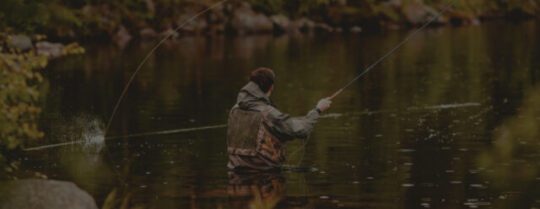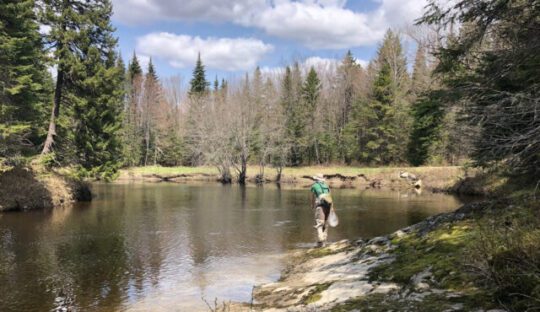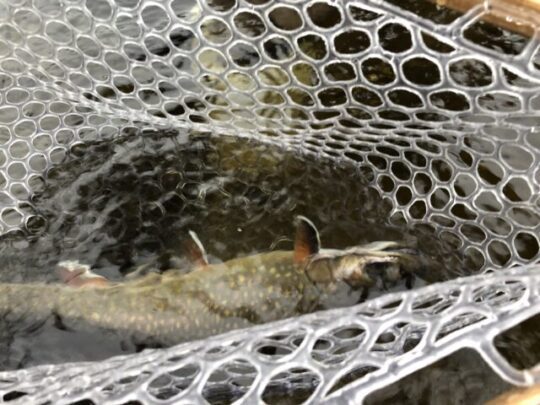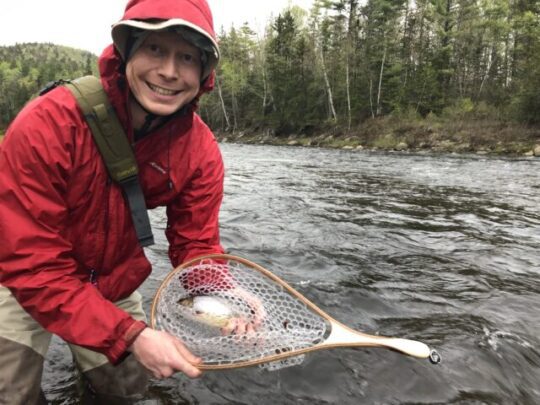
If you want to catch more fish, think like an endurance athlete. A full day of fly fishing is a marathon, not a sprint. Mental exercises and techniques used by high-performing runners, rowers, cross country skiers, cyclists, and swimmers can be used by fly fishers too. Specifically, the two components of mental fitness that I want to focus on are “visualizing the outcome” and “focusing on the task at hand.”
To read more about how mental toughness applies to professional endurance athletes in events like the Tour de France and IRONMAN, read “How to Train for Mental Toughness” by TrainingPeaks. In a useful blog post, they discuss Short-Term Goal Setting, Visualization, Positive Self-Talk, and Stress Management.
Visualizing the Outcome
You’ve got your waders on, tied on a fly, and locked the car. If you haven’t already, now’s the time to close your eyes and picture what you’re actually trying to accomplish. If your goal for the day is to get some sunshine and escape the couch, then congratulations: you achieved your goal! However, if your goal is to hook a fish that day, then it’s time to mentally prepare for the challenge.
Close your eyes and think about the end result of hooking a fish: the bend in the rod, grabbing the net, taking a photo, etc. Then think about how you’ll feel afterward: the satisfaction of using expensive tackle for its intended purpose, the relief at not getting skunked, and the joy of telling friends and family about your success.
It will be different for each person, but the point is that you’re imagining what the world will look like and what the sensations will be when you accomplish your goal. For a marathon runner, the outcome could be standing on a podium or signing a new sponsorship deal. For you, the outcome could be a photo for social media or landing a new species for the first time. Picturing the aftermath of reaching your goal makes it more attainable.
This visualization exercise doesn’t have to wait until five minutes before your first cast of the day. If you’ve planned a fishing trip in the near future, spend a minute or two in the days beforehand and mentally put yourself in that future situation. If you’ve never practiced mindfulness meditation before, it’s never too late to start.

Focusing on the Task at Hand
Before fishing, I like to take a moment and center on the one or two things that will most help me towards goal achievement. Deep down, we all know our individual “fatal flaws” that we are always working on improving. It could be a hitch in your backcast, staying in an unproductive spot for too long, or refusing to switch from dries to sub-surface.
Whatever it is, keep in mind the one or two things that you can control that will most help you catch fish and repeat them in your head. “Keep my elbow close to my body while casting so that I don’t have a tailing loop.” “Set a timer on my phone for 20 minutes and then move downstream if the pool doesn’t show any signs of life.” “Take the time to rig up a nymphing setup even though I would rather fish a single dry fly.” If you have to, say it ten times in your head or even out loud, and when the time comes, it will be top of my mind.
You can adapt over the course of the day depending on the challenges you face. Just like an endurance athlete will make adjustments depending on how their body feels, what the competitors are doing, or what the conditions are like, you can do the same. If you’re missing strikes, losing fish, or getting broken off, go through the process of visualizing what overcoming that minor obstacle will look and feel like, then identify the action you need to take.

Putting It All Together
Just like the famous Yogi Berra quip that “90% of baseball is mental,” I would argue that the most important component of successful fly fishing is mental. Making decisions on where to go and what to do is more important than your ability to make long casts, prowess at wading in fast currents, or aerobic fitness for long hikes.
Considering fly fishing a sport that requires mental fortitude will force you to change your mind in ways that lead to continued success. Even if you’re not a triathlete, you can still adopt the same techniques that professional endurance athletes use to get themselves ready to compete at the highest level. Envisioning the outcome and then laser focusing on the specific tasks that will lead you to achieving a goal is a surefire way towards getting more out of your time on the water.

Discover more from BlogFlyFish.com
Subscribe to get the latest posts sent to your email.

I like it! Thanks, that certainly can’t hurt.
Thanks Bob. Give it a shot and let me know how it goes. Cheers.